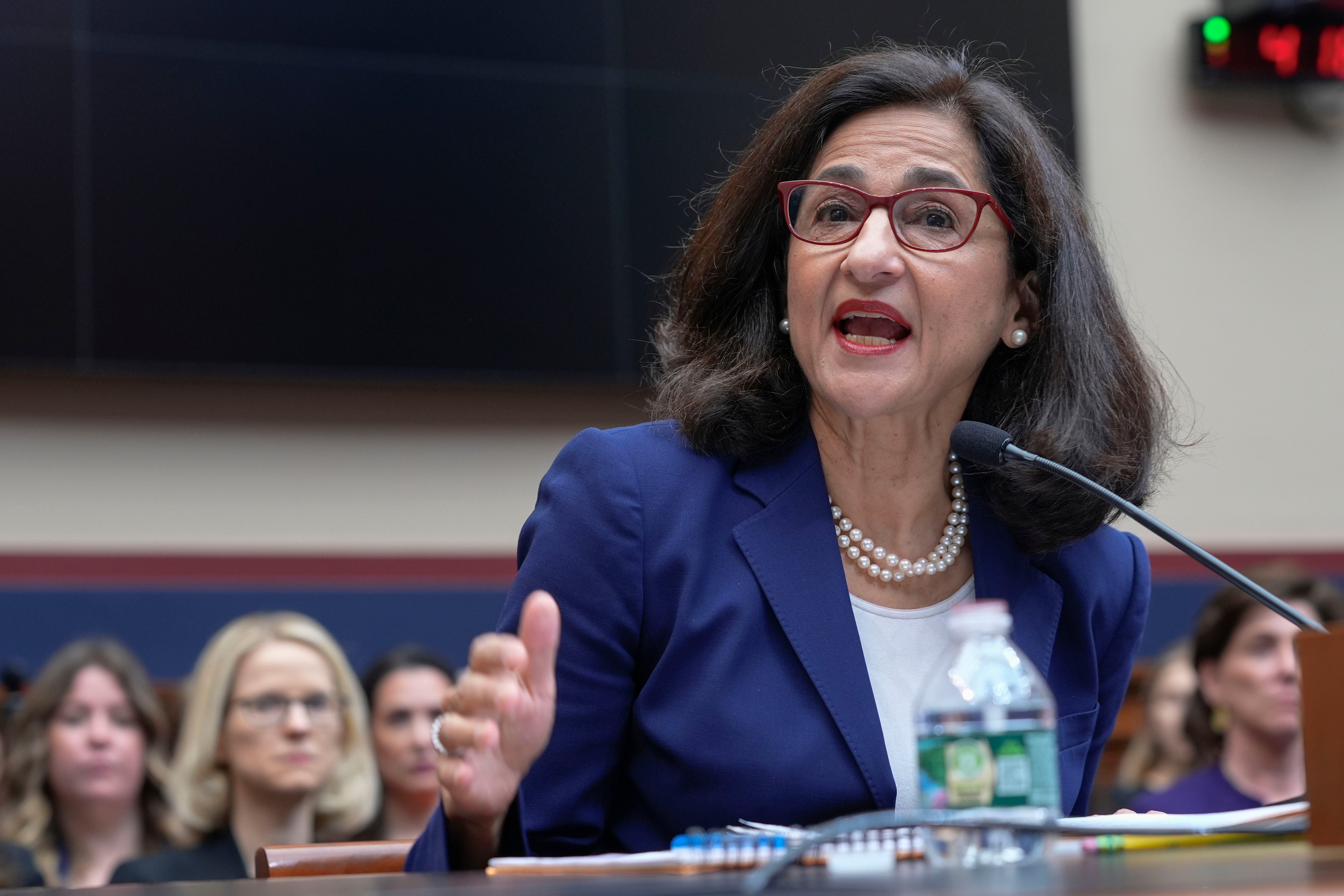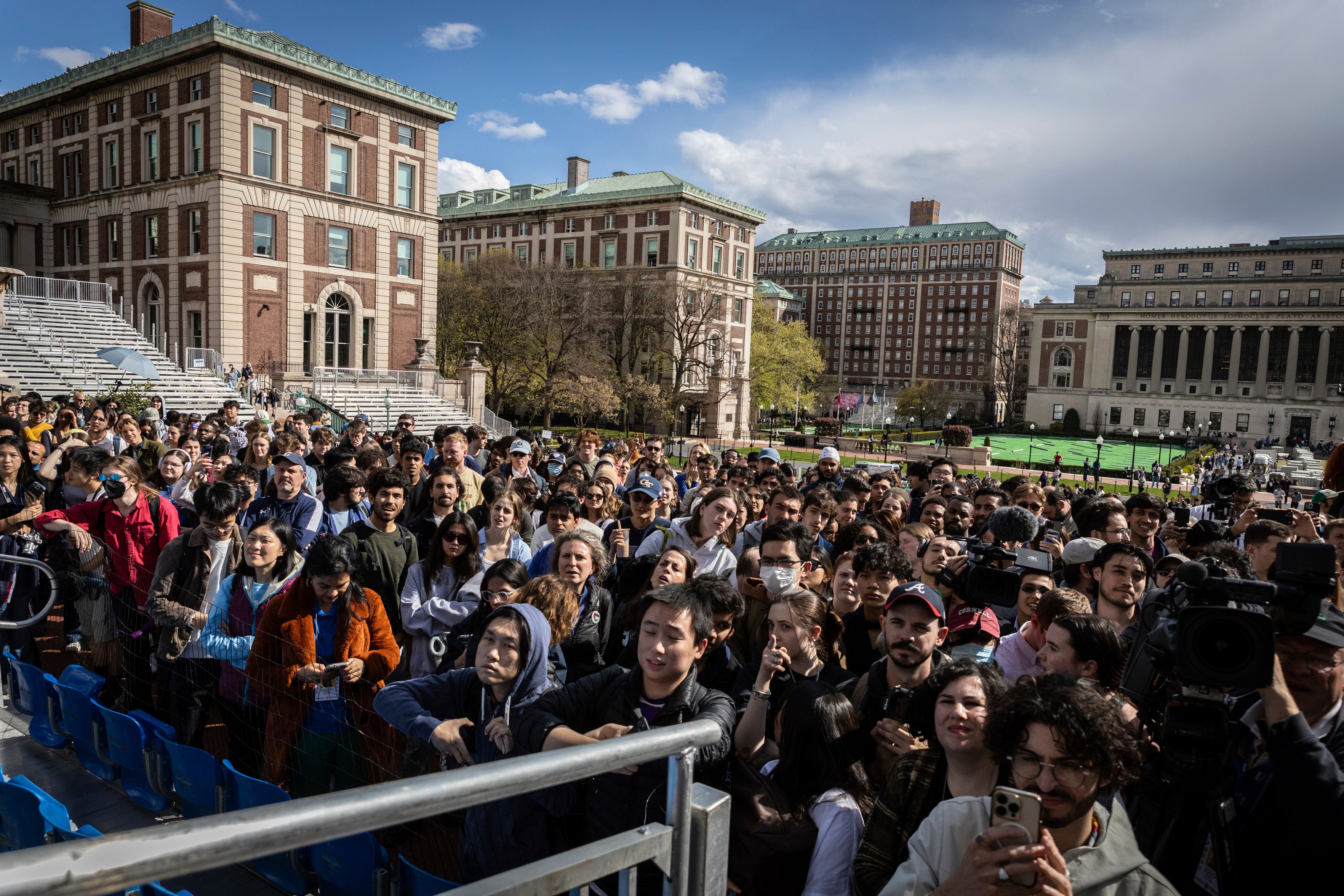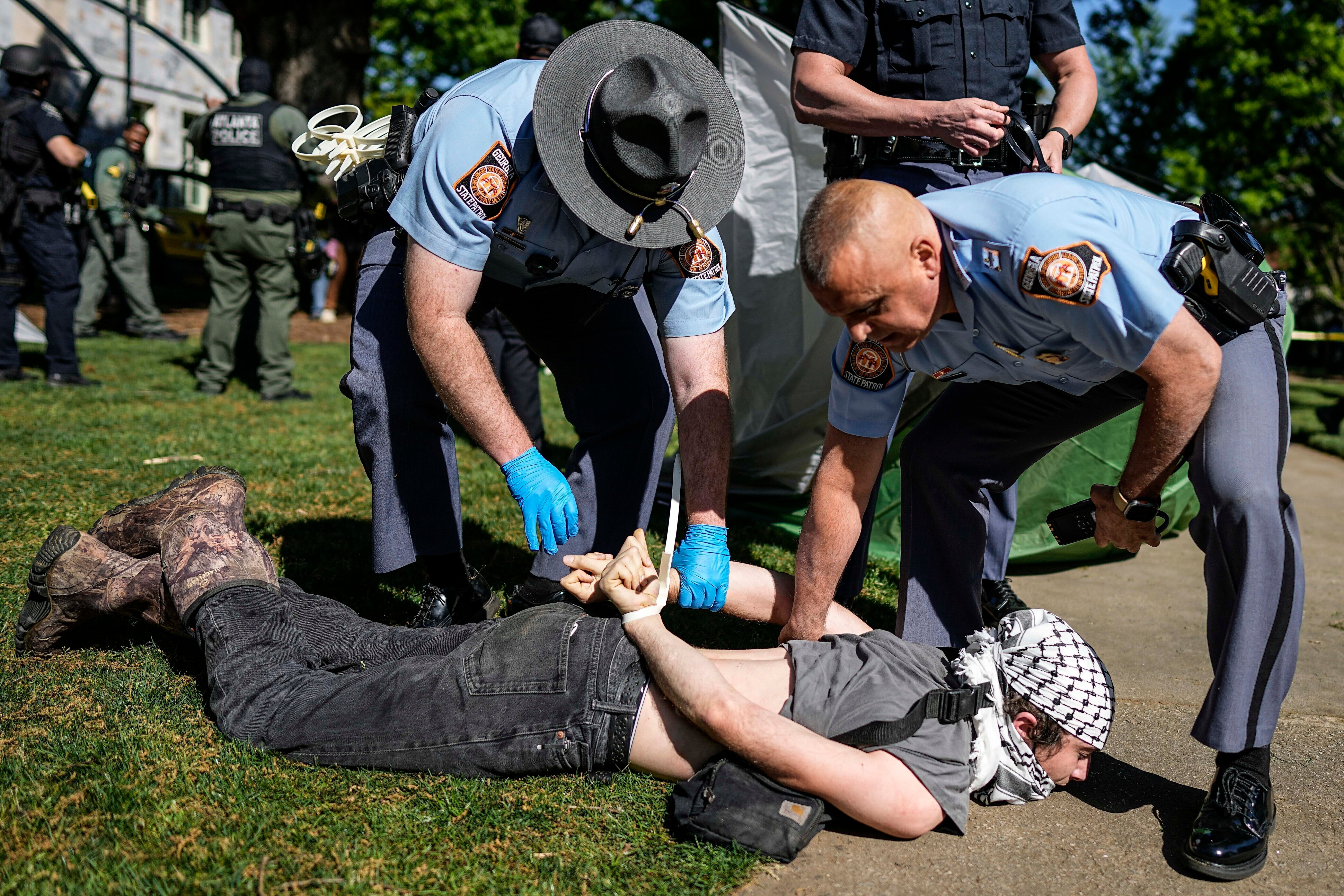Columbia’s senate calls for investigation into university president over reaction to Gaza protests
The sentate voted on Friday as protests over the Israel-Gaza war continued on campuses across the country
Your support helps us to tell the story
From reproductive rights to climate change to Big Tech, The Independent is on the ground when the story is developing. Whether it's investigating the financials of Elon Musk's pro-Trump PAC or producing our latest documentary, 'The A Word', which shines a light on the American women fighting for reproductive rights, we know how important it is to parse out the facts from the messaging.
At such a critical moment in US history, we need reporters on the ground. Your donation allows us to keep sending journalists to speak to both sides of the story.
The Independent is trusted by Americans across the entire political spectrum. And unlike many other quality news outlets, we choose not to lock Americans out of our reporting and analysis with paywalls. We believe quality journalism should be available to everyone, paid for by those who can afford it.
Your support makes all the difference.Columbia University’s senate has called for an investigation into president Minouche Shafik and members of her administration, amid the ongoing protests on campus over the Israel-Gaza war.
The sentate voted on Friday to approve the resolution, and accused the administration of violating established protocols, undermining academic freedom, and breaching the due process rights of both students and professors, according to the senate’s Resolution Adressing Current Events, seen by The Independent.
Ms Shafik has faced heavy criticism for her decision to allow the New York Police Department (NYPD) to disperse protesters on the campus, resulting in the arrest of more than 100 students.
The resolution was based partly on a damaging report by the senate executive committee, which accused Ms Shafik’s administration of engaging in “many actions and decisions that have harmed” the institution. The resolution was adopted by a vote of 62-14, with three abstentions.
The resolution also calls for establishing a senate task force to investigate university decision-making in future.
Part of the resolution stated: “We unreservedly condemn external interference in the internal affairs of Columbia University that undermines the traditions of academic freedom and shared governance.”

Dr Jeanine D’Armiento, Chair of the University Senate Executive Committee, said: “Columbia University is an institution of teaching, research, and learning. We are not a corporate entity, a media outlet, or an arm of any political party.
“We have a structure of shared governance, with the University Senate the third branch of University governance, functioning in a democratic fashion alongside the President and the Board of Trustees, as set out in the University Statutes,” she said, in a statement shared with The Indpendent following Friday’s senate meeting.
“As with any democracy with its structures and institutions, there are moments of challenge, even crisis, but these structures and institutions survive, adapt, and, ultimately, prosper because we work together for the greater good of all members of our community.
“We recognize the external challenges but we are united in our purpose of charting a course forward and identifying productive ways by which we can reunite our community.”
She continued: “Our goal today first and foremost was to tell our students that we support you. We want the administration to turn around and realize they are running a university. Our message to students is also that, like you, we care about what will happen once the media depart our campus: we are going to keep pushing and pushing until the administration gets it right.

“Finally, we wanted to show our students the value of collective decision-making, where all parties are heard and the group comes to consensus through conversation.”
A statement from Columbia University later acknowledged the vote but said that the administration and the Senate shared the “same goal of restoring calm to campus so everyone can pursue their educational activities.”
“We are committed to an ongoing dialogue and appreciate the Senate’s constructive engagement in finding a pathway forward,” the statement read.
Despite the strong passing of the resolution to investigate Ms Shafik and the administration, the Columbia senate does not have the power to remove the president. However, per The New YorkTimes, some expressed on Friday that the outcome could further erode the relationship between Ms Shafik and the Columbia community.
It is the latest blow to the beleagured president, who has already undergone a grilling by Republican lawmakers in Congress about antisemitism on college campuses. Despite striking a more conciliatory tone before the House Education and Workforce Committee than the presidents of Harvard and the University of Pennsylvania, Ms Shafik was later hit by a motion of censure from Columbia’s chapter of the American Association of University Professors.
The AAUP responded angrily to Ms Shafik’s congressional testimony, accusing her of capitulating to demands from lawmakers who they said made “slanderous assaults” on faculty and students, and later submitted a motion of censure against her.

On Monday, Republicans in New York’s delegation to the US House wrote a letter urging Ms Shafik to resign, saying she had failed to provide a safe learning environment in recent days as “anarchy has engulfed the campus.”
During a visit to Columbia on Wednesday, Republican House Speaker Mike Johnson called for Shafik to resign “if she cannot bring order to this chaos.” Mr Johnson was loudly booed during his address.
The original Columbia encampments where set up in protest after students asked the school to divest financial ties to Israel over the war in Gaza. Protests in unversities in other states, including USC and the University of Texas in Austin, have espoused similar sentiments.
Just less than two weeks since the NYPD clashed with protesters at Columbia, the protests have sparked an international movement. On Friday, police in Paris worked to oust protesters who occupied the Sciences Po campus in the French capital.

Join our commenting forum
Join thought-provoking conversations, follow other Independent readers and see their replies
Comments